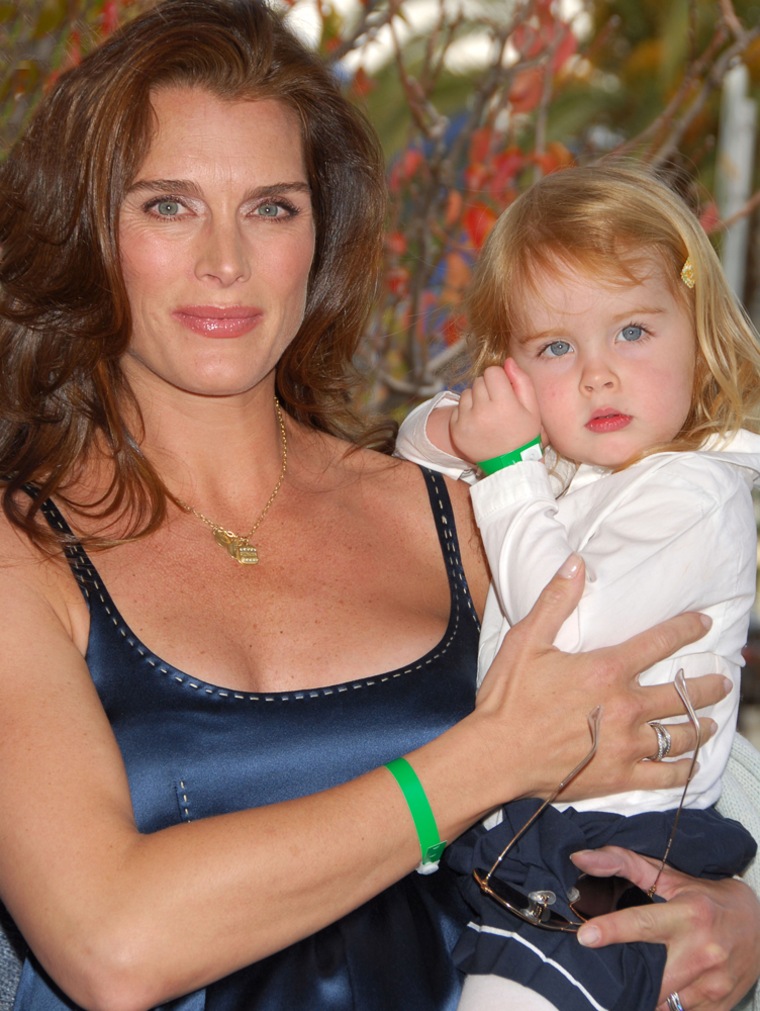The attention goes to celebrity sufferers, such as Brooke Shields, or to grim cases in which mothers kill their children. But beyond the headlines about postpartum depression, states are making strides in raising awareness of the disorder and screening more mothers for it.
The boldest move has come in New Jersey, where a first-of-its-kind law was signed this month requiring doctors to educate expectant mothers and their families about postpartum depression and to screen new moms for the widespread condition.
"What New Jersey has done is phenomenal — it's what we want to have in every state in the union," said Cheryl Hill, president of the Washington-based Family Mental Health Institute.
Several other states have launched awareness campaigns, including TV and radio spots in New York. On May 12, advocates for more ambitious federal action will lobby on Capitol Hill, including Edrienne Carpenter of Texas, who was battling postpartum depression when she won the 2004 Mrs. United States beauty pageant.
"I learned the hard way that there is a need for more educational awareness, emotional and physical support, and medical resources to be at the fingertips of women," Carpenter says. "In today's news, we've heard of too many cases that have ended in tragedy."
Among recent criminal cases in which postpartum depression was cited as a possible factor were the 2001 drowning of five children in Texas by Andrea Yates, another Texas case in which a mother severed her baby's arms, and the drowning of three sons by a Norfolk, Va., mother.
Hill, who suffered from depression after her now-grown children were born, said the publicity about such cases has mixed consequences.
"People are starting to understand the disease a little bit more — that's been helpful," she said. "But it hurts women who suffer from postpartum depression. They're afraid of coming forward. They don't want to be labeled as crazy."
Doctors and researchers say most new mothers experience occasional sadness and anxiety, known as the "baby blues," that does not require treatment. Roughly 10 percent to 15 percent of new mothers suffer postpartum depression, a more serious condition which can affect a woman's well-being and which, experts say, should be treated through therapy, group support or medication.
Emily Ashby, of Marshall, Va., says depression swiftly engulfed her after her first child's birth five years ago.
"I had a fantastic pregnancy and was excited to be a mom," Ashby said in a telephone interview. "But almost as soon as she was born, I know something wasn't right.
"All of a sudden, I couldn't drag myself out of bed in the morning," she said. "It became this black hole I fell into."
She told her husband, but he was unfamiliar with postpartum depression and insisted Ashby could shake off the malaise on her own. After six weeks, she told her doctor, and eventually started taking drugs which rapidly restored her sense of joy.
Though she praised her doctor, Ashby said physicians should be more proactive generally in informing and questioning new mothers and their husbands about depression.
New Jersey's program stresses a proactive approach. Over the past nine months, the Health Department has trained more than 4,500 doctors, nurses, psychologists and social workers to provide screening, referrals and treatment for postpartum depression.
Celeste Andriot Wood, assistant commissioner for family health services, said the department isn't mandating a particular screening method. Its recommendations include the Edinburgh Postnatal Depression Scale, which asks 10 simple questions about emotions.
New Jersey has roughly 115,000 births a year, and Wood estimated that 10 percent of the new mothers will require intervention after positive screening for postpartum depression. Even if that increases referrals by 50 percent, the state has sufficient resources to cope, she said.
Dr. Paul Stumpf, head of the New Jersey branch of the American College of Obstetricians and Gynecologists, said most of his colleagues already sought to identify patients with depression, but he praised the new legislation.
"It's a matter of increasing the visibility of the problem, keeping it on the front burner," he said.
The measure succeeded partly because of strong support last year from then-Gov. Richard Codey and his wife, who had postpartum depression.
Nationally, the disorder has been chronicled in memoirs by former sufferers, such as actress Brooke Shields' "Down Came the Rain." The book prompted actor Tom Cruise to publicly criticize Shields for taking antidepressants.
New Jersey's initiative, based on recommendations from health professionals, contends that medication, counseling and support groups all can be effective.
Dr. Ralph Wittenberg, medical director of the Family Mental Health Institute, said drugs and psychotherapy each work in about two-thirds of postpartum depression cases. Used together, the success rate can exceed 90 percent, he said.
